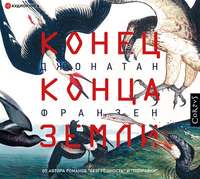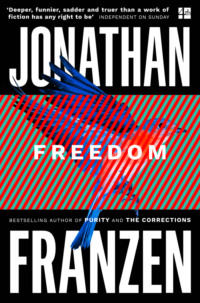
Полная версия
The Kraus Project
His charm, according to his grown-up defenders, is a musical one. To which I reply: to be responsive to literature, you don’t need to be responsive to music; all you need from music to create a mood is the melody, the rhythm.52 I don’t need a mood when I’m doing literary work; I create a mood in myself by working. To get the juices flowing, I use a tone from a miniature spinet that is actually a cigar box and which, if pressed on, emits a few old Viennese notes that have been locked inside it for a hundred years. I’m not musical; Wagner would disturb me in this situation.53 And if I sought the same kitschy stimulus of melody in literature, I could produce no literature on such a night. Heine’s music may, by the same token, suffice for musicians who require more significant disclosures from their own art than his little bit of euphony affords. What, then, is poetry in the Heinean style, what is that German taste in art into whose prettinesses and wittinesses the wild hunt of Liliencron’s language burst, as the avant-gardist Gottfried August Bürger’s once had?54 Heine’s poetry: it is mood or opinion with the Hark! hark! of jingling bells. This poetry is melody—so much so that it demands to be set to music. And it owes more to this music than its own for its success with the philistines. Simplicissimus once poked fun at the kind of German who crosses himself to ward off Heine, only to sing his “Lorelei” later on, blissfully drunk on emotion, “nevertheless.”55 Two images: but the contrast isn’t as glaring as it may seem at first glance. For the philistines who curse Heine don’t rise to the true philistine confession until the second image, when they sing him. When a popular song is made out of a poem, is it insight into the poem’s literary value that makes the song popular?56 How many German philistines would know what Heine means if Herr Silcher hadn’t set “I know not what it means”57 to music? But is it an argument for the poet that this clientele would have clamored for his undifficult poetry even if it hadn’t been delivered to them on wings of song?58 Oh, this narrow-minded hatred of Heine, which targets the Jew, tolerates the poet, and bleats along with a sentimental melody with or without a musician’s later help. Art brings life into disorder. The poets of humanity restore chaos again and again; the poets of society do their singing and lamenting, their blessing and cursing, within a well-ordered world. All those for whom a poem amounts to an agreement between themselves and the poet, sealed with rhyme, flee to Heine. All those who wish to join the poet in his pursuit of urbane allegories and his establishment of relations with the outside world will consider Heine a greater poet than Goethe. But those who consider a poem to be the revelation of a poet lost in his observation of Nature, not of a Nature lost in the observations of the poet, will be satisfied to reckon Heine a technician skilled at pleasure and sorrow, a speedy outfitter of stock moods. When Goethe shares in—and shares with us—the “silence on every peak,” he does it with such intensely felt kinship that the silence can be heard as an intimation.59 But if a pine tree in the North stands on a barren peak and dreams of a palm tree in the Orient, it is an exceptional courtesy of Nature to oblige Heine’s yearning allegorically. Seeing an artful fake like this in the show window of a confectioner or a feuilletonist might put you in a good mood if you’re an artist yourself. But does that make its manufacturer one?60 Even the plain outline of a perception of Nature, from which barely visible threads spin themselves out toward the soul, seems to me more lyrical than the dressing-up of ready-made moods, because it presupposes empathy. In this sense, Goethe’s “Stillness and Sea” is lyric poetry, as are Liliencron’s lines: “A river babbles its happy way across the land, a field of ripe rye gathers in the west, then Nature leans her head upon her hand and, weary from her work, takes rest.” Deeper moods arise from a reflecting heathscape on a summer morning than from reflective palms and pine trees; for here Nature rests her head upon her hand, while there Heinrich Heine pressed his hand to his cheek … You’re ashamed that between fears and tears there ever existed such slick intercourse that went by the name of poetry; you’re almost ashamed of the polemics. But you should open the Book of Songs and try reading the right-hand and the left-hand pages higgledy-piggledy, interchanging the lines. You won’t be disappointed, if you’re not disappointed with Heine. And those who are already disappointed will, for the first time, not be. “The little birds, they chirped so fine / Glad lovesongs did my heart entwine.” That can stand right or left. “In those darling little eyes of thine”: this need not simply rhyme with “My dear darling’s mouth as red as wine” and “blue little violets of thine eyes sublime” or, again, with “thine little red-rosy cheeks divine”; at every point the plea could stand: “Dear little darling, rest thy little hand upon this heart of mine,” and nowhere in this dear little chamber of poesy would the transposition of mine and thine be felt as a disturbance. On the other hand, Heine’s entire “Lorelei,” say, could not be substituted for Goethe’s “Fisher,” even though the only seeming difference is that the Lorelei influences the boatman from above, whereas the watery woman influences the fisher from below. Truly, Heinean verse is operetta lyrics, which even good music isn’t ruined by. Meilhac and Halévy’s lines wouldn’t be out of place in the Book of Songs:
I am thine
Thou art mine
What heavenly luck is ours
A pair of doves
So much in love
Cannot be found beneath the stars.
This is exactly the sort of shallowness that, in combination with Offenbach’s music, generates genuine emotive value or takes on deeper satirical significance.61 Offenbach is music, but Heine is merely the words for it. And I don’t believe that a real poet wrote the lines:
And when I wailed to you about my pain,
You all just yawned in mute disdain;
Yet when I set it out in lyrical phrases,
You couldn’t wait to sing my praises.
But it’s an epigram; and it perfectly captures the mass appeal of Heine’s love poetry, in which the little songs are merely the ornament of big sorrows, not their naturally inevitable expression. The same mass appeal by which the poet Heine feels so rewarded. This is a poet who writes, in one of his prefaces, that his publishers have shown the most gratifying faith in his genius by means of the large first printings they’re wont to make of his work, and who points proudly to the account books in which the popularity of his poetry stands registered. This pride is as little surprising as that popularity. How, indeed, could lyrical work in which ideas are candied, rather than crystallized, fail to be greeted with universal satisfaction? At no point before, say, his deathbed poetry did verse become for Heine such a creative necessity that it had to be verse; and these rhymes are papillotes, not butterflies: paper ruffles often folded for no other reason than to demonstrate a fold. “I could have said all of that very well in good prose,” an amazed Heine writes after setting a preface in verse, and he continues: “But when one reads through the old poems again to polish them up with a view to republication, one is unexpectedly surprised by the jingling routine of the rhyme and meter…” It is indeed nothing but a journalism that scans: that keeps the reader minutely informed about his moods. Heine is always and overplainly informative. Sometimes he says it with blue flowers from someone else’s garden, sometimes directly. If the factual poem “The Holy Three Kings” had been written by a poet, it would be a poem. “The little ox bellowed, the little child screamed, and the three holy kings did sing.” This would be the mood of factuality. In Heine’s hands, though, it’s merely a dispatch. This becomes quite clear in a passage of the “Vitzliputzli”:62
One hundred sixty Spaniards
Met their death that day;
More than eighty others
Were taken by the Indians.
Seriously wounded, too, were many
Who only later died.
Nearly a dozen horses were lost,
Some killed, some captured.
According to our local correspondent. And, as with the factuality, so with the feeling, so with the irony: nothing immediate, everything utterly graspable with that second hand that can grasp nothing but the material. In the petting of mood, in the tickling of wit.
But the gates made my darling
Slip silent to a rendezvous;
A fool is always willing
When a foolish girl is too.
This joke isn’t made by any real cynic whose love has given him the slip. And no poet calls these words to a girl who is moved by the sunset she is watching:
My girl, now don’t you frown,
This happens all the time;
In front here it goes down
And comes back up from behind.
Not out of respect for the girl; out of respect for the sunset.63 Heine’s cynicism is at the same level as the girl’s sentimentality. And as his own sentimentality. And when, greatly moved, he says of himself, “there I wove my tender Rhymes out of Balm and Moonlight,” you may well want to be as cynical as he is and ask him—Herr Heine, now, don’t you frown—whether he didn’t perhaps mean to write “there I wove my tender Rhymes for Balm & Moonlight,” and whether this might not be the very publishing house to whose account books he was just referring.64 Poetry and satire—the phenomenon of their alliance becomes comprehensible: neither of them is there, they meet on the surface, not in the depths. This tear has no salt, and this salt doesn’t salt. When Heine—what is the phrase?—“punctures the mood with a joke,” I have the impression that he wants to sprinkle salt on the tail of the pretty bird: an old experiment; the bird still flutters away.65 With Heine, the illusion succeeds, if not the experiment. You can prove the contrary to him; to him, but not to his credulous audience. He wasn’t simply taken along through life as an early accompanist of everyday lyrical experiences, he was also always, by virtue of his intellectualism, passed along by people’s youthful idiocy to their more enlightened selves. And they want to be enlightened about everything, just not about Heine, and even if they awaken from his dreams they still have his wit.
This wit, however, in verse and prose, is an asthmatic cur. Heine isn’t capable of driving his humor to the height of pathos and chasing it down from there. He trots it out, but he can’t make it jump. “Just Wait!” is the title of a poem.
Because I flash with such success
You think at thundering I can’t excel!
But you’re all wrong, for I possess
A talent for thundering as well.
Dreadful it will stand the test,
When come the proper day and hour;
You shall hear my voice at last,
The thunderous word, the weather’s power.
The wild storm on that day will cleave
Full many an oak tree tall,
Full many a palace wall will heave
And many a steeple fall!
These are empty promises. After all, what does Heine say about Platen?
In words, a splendid deed
That you intend to do someday!—
How well I know this breed
Who borrow time but do not pay.
Here is Rhodes, now come and show
Your art, this is your chance!
Or hold your tongue and go,
If today you cannot dance.
“A talent for thundering as well”—that sounds like journalism, doesn’t it? But from thunder not a sound and from the lightning only a twinkle. Only glimmerings, only the heat lightning of thoughts that went down somewhere or will sometime.
For just as an original thought need not always be new, so the person who has a new thought can easily have got it from someone else. This will remain a paradox for everyone except those who believe that thoughts are preformed, and that the creative individual is merely a chosen vessel, and that thoughts and poems existed before thinkers and poets—those who believe in the metaphysical way of thought, which is a miasma, whereas opinion is contagious, that is, it requires direct contact in order to be caught, in order to spread. Thus a creative head may say originally what somebody else has already said, and someone else may already be imitating a thought that won’t occur to the creative head until later. And it’s only in the rapture of linguistic conception that a world grows out of chaos. The subtlest illumination or shading of a thought, the tinting, the toning: only work like this goes truly unlost; no matter how pedantic, laughable, and meaningless it may seem at the time, it will eventually come to benefit the general public and yield, in the end, as a well-deserved harvest, those opinions that today are sold unripe with wanton greed. Everything that’s created remains as it was before it was created. The artist fetches it down from the heavens as a finished thing. Eternity has no beginning. Poetry or a joke: the act of creation lies between what’s self-evident and what is permanent.66 Let there be light, again and again. It was already there and can reassemble itself from the spectrum. Science is spectral analysis: art is the synthesis of light. Thought is in the world, but it isn’t had. It’s refracted by the prism of material experience into elements of language; the artist binds them into a thought. A thought is a discovered thing, a recovered thing. And whoever goes looking for it is an honest finder; it belongs to him even if somebody before him has already found it.
In this and only in this way did Heine anticipate Nietzsche with the idea of a Nazarene type.67 He demonstrates, with every word of his polemic against Platen, how far removed he was from the world of Eros and Christianity, which nevertheless shows up in his poem “Psyche” with such neat serendipity. In the transformations of Eros, Heine was able to see only the goal of experience, not the way of it; he applied ethical and aesthetic norms to it, and here, where we arrive at the border between the demonstrably true and the demonstrably silly, he anticipated not Nietzsche but the late Herr Maximilian Harden.68 In the famous Platen polemic—which owes its fame solely to our pulp interest in the persons involved and to the even pulpier pleasure we get from the part under attack, and which would have to have destroyed Heine’s reputation if there existed in Germany a feeling for true polemical power instead of the mere carping of meanness—in this document, Heine chooses to make his erotic confession with the words:69
The one likes to eat onions, the other has more of a feeling for warm friendship, and I as an honest man must frankly confess that I like to eat onions, and a crooked female cook is dearer to me than the most beautiful friend of beauty.70
This isn’t gentlemanly, but it isn’t profound, either. He apparently had no concept of the diversity of sexual love, which confirms itself even in the things it rejects, and he crammed this wide world into the crude schema of man and woman, normal and abnormal. Indeed, even on his deathbed, the image that comes to hand is of the milkmaid who “kisses with thick lips and strongly smells of cow chips,” although here she’s only supposed to be more warming than fame, not warm friendship.71 The person who understands the soul this way is a feuilletonist! Heine’s polemic is feuilletonistic in the disconnectedness with which opinion and wit run alongside each other. The outlook can reach no further than the humor can. A person who makes fun of his adversary’s sex life is incapable of rising to polemical power. And a person who ridicules his adversary’s poverty can make no better joke than this: Platen’s Oedipus would “not have been so biting if its author had had more to bite on.” Bad opinions can only make bad jokes. The play of wit and word, which compresses whole worlds of contrast onto the tiniest of surfaces and can therefore be the most valuable kind of play, must, in Heine’s hands, as in the hands of the dismal Saphir, become a slack pun, because there are no moral funds to underwrite it.72 I believe he twice makes awful reference to somebody having a bad case of “melancolic.” Such coinages—as also, for example, his quotations from the “sownets” of Platen or his avowal that he and Rothschild have been on “famillionaire” terms—he naturally then blames on Hirsch-Hyacinth.73 This from a polemicist who talks about his trusty Protestant kitchen hatchet! A hatchet that can’t even trim a sentence! The structural backbone of his attack on Börne consists of direct quotations from Börne, and every time he brings Börne out to speak you can detect quite precisely the point at which Börne stops and Heine’s own yakking takes over.74 He does it in the heavy-handed porcelain story.75 At every step, you want to revise, condense, deepen. “In addition to the passage of the Polish soldiers, I have characterized the occurrences in Rhenisch Bavaria as the next lever which, following the July Revolution, gave rise to the agitation in Germany and had the most profound influence even on our countrymen in Paris” is not a sentence I would have let stand. The parts without a frame; the whole without composition; that short-windedness that has to keep catching itself in a new paragraph, as if to say “So, and now let’s talk about something else.”76 Had Heine been capable of aphorism (for which, indeed, the longest wind is needed), he could have made it through even a hundred pages of polemic. Of Börne, the ethically and intellectually rejected person who towers over the writer attacking him, he says, “In the end, all of his hostilities were nothing more than the petty jealousies that the little drummer boy feels for the great drum major—he envies me for the big plume that struts so boldly in the wind, and for my richly embroidered uniform, on which there’s more silver than he, the little drummer boy, could buy with his entire life savings, and for the skill with which I twirl my big baton, etc.” The skill is undeniable; and the drum major is also dead-on. Heine sees in Börne’s household “an immorality that disgusts” him; his “soul’s entire feeling for purity” bristles “at the thought of coming in the slightest contact with Börne’s immediate surroundings.” He has also wondered for the longest time whether Madame Wohl is Börne’s lover “or merely his wife.”77 This perfectly fine joke is characteristic of the rootlessness78 of Heine’s wit, for it pays off with the opposite of Heine’s notion of sexual morality. Heine would have to have been curious, in a straightforward bourgeois way, as to whether Madame Wohl was Börne’s wife or merely his lover. Indeed, on his deathbed he still sets great store by his avowal that he never touched a woman he knew was married. But there are yet more embarrassing contradictions in this piece. Jean Paul, for example, is called “the muddled polymath of Bayreuth,” while Heine says, of himself, that he has “planted in the literature of Europe monuments redounding to the eternal credit of the German Mind.”79 The German Mind, however, would mainly like to escape with its life; and it will rise again only when the intellectual flood of filth in Germany has run its course: when people again begin to appreciate the mental labor of linguistically creative manliness80 and to distinguish it from the learnable manual labor of linguistic ticklings. And will there then be anything left of Heine but his death?
The deathbed poetry, parts of Romancero, Lamentations, Lazarus: here he no doubt had the best of all helpers in raising his form to the level of genuine figuration. It took the experience of dying to make Heine a poet. It was a dictate: sing, bird, or die. Death is an even better helper than Paris; death in Paris, pain and homesickness, they do finally accomplish something authentic.
I hear the trot, the hooves beat near,
The dark rider comes to fetch me here—
He tears me away, from Mathilde I must part,
Oh, the thought will burst my heart!
This is a different poetry from the one whose success is proven in the account books. For Heine’s influence derives from the Book of Songs, not the Romancero, and if you want to judge the accomplishments by the man, you have to open the former, not the latter. Death concentrates, death clears away the trifling underworld-weariness81 and lends pathos to the cynicism. Heine’s witticisms, so often just the dissonance of an unlyrical perspective, produce a higher harmony here. Compressed by its extinction, his wit finds more powerful fusions; and tasteless items such as “Get thee to a nunnery, dear child, or get thee a shave” become rarer.82 The mot traditionally ascribed to him, “Dieu me pardonnera, c’est son métier,”83 is perhaps, in its much-admired triteness, an invention of those who wanted Heine to remain true to his style to the end. But it suits the whole not badly. Both in belief and unbelief, Heine can’t rid himself of the imagery of commerce. Love itself says to the god of songs that “it demands guarantees,” and the god asks how many kisses Love will advance him against his golden lyre. And meanwhile Heine’s cynicism, this stale potpie of wit and woe, has become rather pleasing to the German palate, though the palate may not want to admit it. Compared with Offenbach, in whose orchestra the thousand-year misery is ringed by a dance of eternal delight, this ridiculer of misery looks like a trained Asra next to a born Bluebeard—to the kind that kills when it loves.84
… What does the lonely tear want?85 What does a humor want which smiles through tears because both the strength to cry and the strength to laugh are lacking? But the “brilliance of language” isn’t lacking, and it runs in the family. And it’s uncanny how few people notice that it comes from chopped liver, and how many have spread it all over their household bread. Their noses are stuffed, their eyes are blind, but their ears are wide open to every hit song.86 And so, thanks to Heine, the feuilleton has evolved to the highest level of perfection. There’s nothing to be done with an original, but copies can always be improved. When the imitators of Heine began to fear that somebody would expose them, all they had to do was become forgers of Heine, and they could go into mass production under his name. They take up a lot of space in the literature of Heine. But the experts who succeeded in exposing the fraud aren’t expert enough to realize that to expose the thief is to have exposed the owner.87 He himself broke into the house with a skeleton key, leaving the door open behind him. He set a bad example for his successors. He taught them the trick. And the farther the trick spread, the more delicious it became. Thus the pieties of journalism demand that every editorial masthead today include at least a bedbug from Heine’s “mattress grave.” Every Sunday it creeps flatly through the columns and stinks the art out of our noses! But to be tricked out of a real life in this way is entertaining to us. In times that had time, art gave us one to resolve. In times that have the Times, form and content are split apart for faster understanding. Because we have no time, writers are obliged to say in many words what could have been succinctly put. So Heine really is the forerunner of modern nervous systems, praised by artists who fail to notice that the philistines have tolerated him a lot better than he tolerated philistines. For the philistines relent in their hatred of Heine when they take his poetry into account, while the artists take Heine’s hatred of philistines into account in order to rescue his personality. And so, eternally relevant because of a misunderstanding, he vindicates the pretty coinage “cosmopolite,” in which the cosmos reconciled itself to politics. Detlev von Liliencron had a merely provincial outlook. But it seems to me that he was more cosmic in Schleswig-Holstein than Heine was in the cosmos. In the end, the people who never came out of their province will go farther than the people who never came into one.88
What attracted Nietzsche to Heine—he had delusions of smallness when, in Ecce Homo, he wrote that his and Heine’s names would go down together through the centuries—must have been that hatred of Germany which embraces every ally it can find. But when you hold up the lazzarone as a cultural ideal alongside the German constable, there certainly seems to be nothing more German than such idealism, which takes a plagiarizing romanticism for something to be aspired to.89 The intellectual problem of Heine, this refresher of German air, certainly should not be overlooked alongside the artistic problem of Heine: indeed, it runs alongside. And yet here, once, some oxygen was let into the room of Germany, and after a momentary improvement it tainted the air. That someone with nothing to say is better off saying it understandably: this perception was the relief for which Germany thanks its Heine after those difficult times when the people with something to say were all incomprehensible. And this undeniable piece of social progress has been attributed to art, since Germans are unshakable in their opinion that language is the means of expression common to both writers and speakers. With all due respect to Heine’s enlightening achievement, he wasn’t so great a satirist as to be deemed unworthy of a monument.90 In fact, he was such a small satirist that the stupidity of his times has descended on posterity. Granted, this posterity builds itself the monument that it refuses to give him. But truly it also builds itself the one it wants for him. And if it doesn’t follow through with its monument, it at least leaves its calling card on Heine’s grave and reassures itself of its piety in the newspaper. As long as the secret balloting about his immortality continues, his immortality will continue, and when a nation of fraternity brothers has a problem, it won’t be making an end of it so soon. But the cultural subcommittee is manned by the Karpeleses and the Bartelses, and whichever way the decision finally falls, it won’t prove anything for the Mind.91 The squalid all-in-due-courseness of this debate, the perennial timeliness of antiquated perspectives, is the perfect emblem for a literary phenomenon in which nothing is eternal but the personality type, which runs through time from nowhere. This type, who amazes his contemporaries by having more talent on their level than they do, has inflicted grievous damage on the art of language, which everyone who speaks believes he can understand.92 We no longer recognize the personalities, and the personalities envy the technicians.93 If Nietzsche admires Heine’s technique, then he is given the lie by every sentence he himself ever wrote. Except one: “You have attained mastery when you neither err nor hesitate in the execution.”94 The converse of this shallow insight is the artist’s business. His achievement is scruples. He seizes, but, after seizing, he hesitates. Heine was a go-getter of the language; never did he cast his eyes down before her. Here is how his credo reads: “The axiom that we may know the character of an author from his style is not unconditionally correct; it is applicable merely to that mass of authors who depend upon momentary inspirations to guide their pens, and who obey the word more than they command it. With artistes, this axiom is inadmissible, for these are masters of the word, they manipulate it to whatever end they please, coin it according to their whim, write objectively, and their character does not betray itself in their style.” And that’s what he was: a talent, because no character; except he confused the artistes with the journalists.95 As for the mass of authors who obey the word, they are unfortunately very few. These are the artists. Talent is what the others have: for it is a character defect. Here Heine utters his unconditional truth; he needs it against Börne. But since he writes objectively and, as a master of the word, manipulates it to whatever end he pleases, the opposite suits him against Platen. In Platen, “unlike the true poet, the language has never become master”; he has, “rather, become a master in the language, or, rather, on the language, like a virtuoso on an instrument.” Heine is objective. Against Börne: “The deeds of an author consist in words.” Against Platen: he calls his achievement “in words, a splendid deed”—“so entirely unfamiliar with the essence of poesy that he doesn’t even know that the word is a deed only for a rhetorician, whereas for a true poet the word is an event.”










